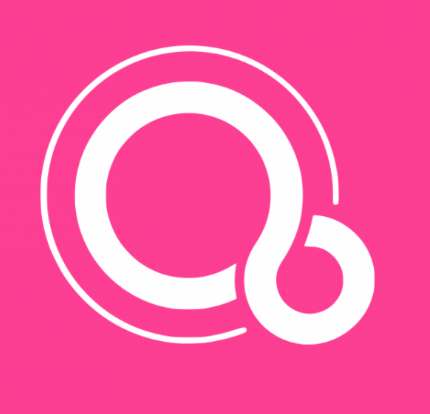| Fuchsia Casts Shadow on Future of Android and Chrome |
| Written by Nikos Vaggalis | |||
| Monday, 08 July 2019 | |||
|
Fushia's existence was akin to a conspiracy theory until Google finally confirmed it at I/O 2019 in May. What does it mean for the rest of Google's operating systems?
It's not a secret that despite its omnipresence at the mobile devices front, Android OS has its own share of problems, both as an end user but also as a developer platform. Fragmentation of version releases and their cumbersome updating, instability, security and privacy are the concerns plaguing the end user. Developing for the platform is not a smooth operation either. Easily introduced memory leaks, dubious Fragment and Activity handling, leaky asynchronous programming, transaction exceptions, cumbersome handling of orientation changes, the presence of Listeners everywhere, fragmentation in the support library and SDK's, deprecation of or changes in APIs etc make building apps for Android a difficult proposition. For an in-depth analysis of what it takes to develop for the platform consult our seven-part "Insider's Guide To Udacity Android Developer Nanodegree" epic journey, beginning here. Google had to do something about it, and did. It endorsed Kotlin as its base language together with totally overhauling the ways you develop by introducing the groundbreaking Jetpack ecosystem. This meant, however, that you have to unlearn most of what you understand and adapt to the new ways by re-training. This, of course, is a huge ask, given the little available time devs have, their established mental model of the platform and the courage to go through the learning process again. A lot of baggage if you ask me. Then came the shift of focus to ChromeOS, again at this year's I/O, even branding it as an all-encompassing OS which runs on Chromebooks, tablets and laptops. More on that in Google Promotes ChromeOS at Google I/O. And now Fuchsia. The plans are not fully disclosed, but at least we know that Google is so serious about it that it just released a developer site about it akin to the Android Developer portal. Glancing over it, you gather that the now supported languages are:
No Kotlin for the moment, maybe because it's too new, but no old time, venerable, Java either?
We also find that Fuchsia is not based on the Linux kernel but on the Zircon microkernel, which means not only that it targets portable devices with low footprints, but also that it breaks ties with Linux-based Android. More info about it on the now official portal https://fuchsia.dev. While Google's true intentions on Fuchsia, and subsequently on Android and ChromeOS remain to be seen, why do I already smell DEPRECATION all over the place?
More Information
Google Promotes ChromeOS at Google I/O Is Google's Fuchsia OS Destined For Android? Google's Fuchsia OS And The Forking Of Swift
To be informed about new articles on I Programmer, sign up for our weekly newsletter, subscribe to the RSS feed and follow us on Twitter, Facebook or Linkedin.
Comments
or email your comment to: comments@i-programmer.info |
|||
| Last Updated ( Monday, 08 July 2019 ) |





